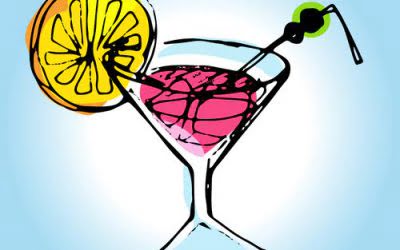Drinking alcohol is an everyday occurrence for millions of people in the U.S. While this substance is legal if you’re 21 years or older, it doesn’t take much for your body to become dependent on alcohol. You’ll know that you’re dependent on this beverage if you go through withdrawal symptoms after you stop drinking for six or more hours.
Understanding the Connection Between Stress and Weight Gain

This article discusses the long-term effects of alcohol, including the risks to your physical health and mental well-being. At least 2 in 5 women experience constipation when they’re pregnant. This is caused by the body producing more of the hormone progesterone, which might make it more difficult for intestinal muscles to contract.
Long-Term Effects of Alcohol on the GI Tract
Among the more commonly used treatments involves administering small doses of specific oral medications. These medications can keep serious side effects at bay and prevent a relapse. For example, a drug known as disulfiram can cause side effects like vomiting and nausea whenever you drink, which makes a relapse less likely. You might also receive naltrexone, which is a type of medication that effectively reduces your cravings for alcohol.
Why does drinking mess with your poop?
- During one-on-one or group psychological therapy, clients learn about AUD and how to manage their symptoms.
- If you’re one of the 40% who experience travel constipation, knowing the possible causes can be the first step to fixing it.
- If it doesn’t help you, there’s no need to strictly stick to it when you’re experiencing symptoms.
- Alcohol is a central nervous system (CNS) depressant that causes several effects on the body.
For one, processed foods often lack fiber, which could upset digestion and aggravate existing GI symptoms. Plus, they contain “high levels of trans fats, which increase gut inflammation, and additives like preservatives, sweeteners or colorants, which can alter the balance of the microbiome of the gut,” Dr. Sonpal explains. Smoothies can be great for preventing or relieving constipation, but only if they’re loaded https://thetennesseedigest.com/top-5-advantages-of-staying-in-a-sober-living-house/ with fiber-rich fruits and vegetables. If you’re adding protein to the mix by way of whey protein, you’ll want to pay attention to your poop frequency. Initially, drinking milk or other dairy foods when you are lactose intolerant can lead to diarrhea and, in some cases, nausea and/or vomiting. This is the opposite of constipation, but these symptoms can lead to dehydration, which can then lead to constipation.

Support groups, specialists, and other therapies may be able to help a person stop drinking or at least reduce the amount they consume. Drinking a lot of alcohol too quickly can lead to alcohol poisoning. Alcohol Top 5 Advantages of Staying in a Sober Living House poisoning occurs when excessive amounts of alcohol in the bloodstream cause vital functions, such as breathing and the heart, to shut down. Currently, it is unclear if alcohol can lead to the development of IBD.
- When you’re uncomfortably constipated, the last thing you want is to inadvertently do something that can plug up the poop in your pipes even more.
- Extra fluids help keep the stool soft and easy to pass, but drinking more liquids does not cure constipation.
- You’ll know that you’re dependent on this beverage if you go through withdrawal symptoms after you stop drinking for six or more hours.
- This may occur if you eat too much at once, and the body is not digesting food properly.
- It turns out that the colon responds well to physical activity.
- If you’re constipated, booze may bind up your bowels even worse.
- In general, for healthy, average people, 8 cups a day is a reasonable goal, though there is not much scientific evidence to support this.

